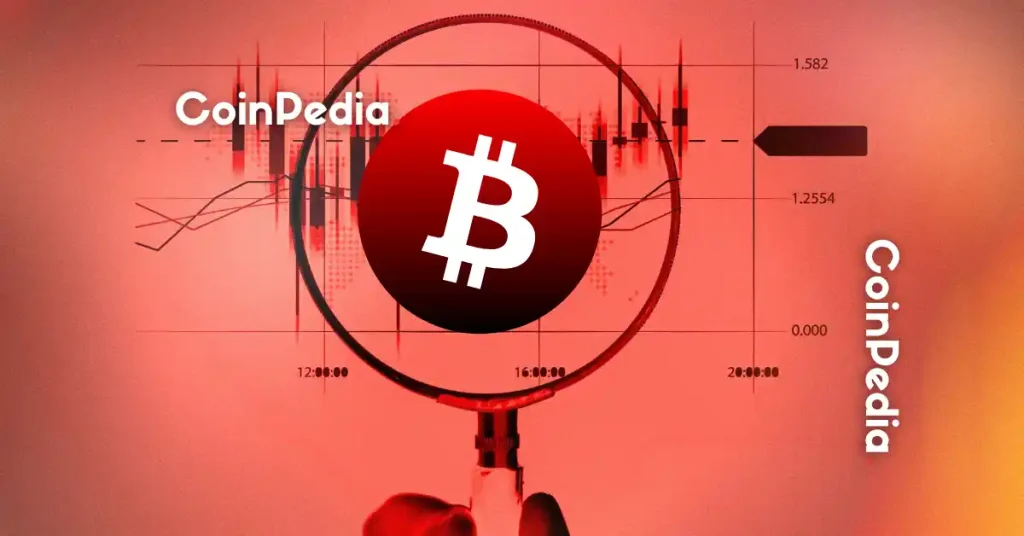
One of the big selling points of crypto assets is that the industry is teeming with new ideas. Like the loosely formed communities around the internet in the 1990s, cryptocurrencies somehow tend to attract heretical thinkers and revolutionaries.
One reason for this is the nature of the technology itself, which offers a whole new way of building code-based systems. Another reason is Web3’s infamous barrier to entry. So the people who ended up in this industry are highly committed and, frankly, smart enough to self-custody valuable assets and not go bankrupt.
On the other hand, what I feel after covering the industry for nearly four years is that I feel like I’m hearing similar ideas again and again. The cryptocurrency market, perhaps more than any other industry, clings to what insiders call the “narrative.” This is the story we tell ourselves and others about what blockchain technology can (potentially) do for us.
But every now and then, someone or an idea comes along that really shakes up the status quo (or at least makes it fun). Here are some of the biggest ideas we heard walking around the Consensus 2023 floor today.
The future of banking is in the past
Informal Systems founder Ethan Buchman wants to start a revolution.
Central banks have mishandled the economy they are supposed to support, the “petrodollar” has caused immense suffering, and corruption is rampant at every layer of the monetary system. Blockchain offers a solution there. But before explaining how, Buchman invites you to ponder the past.
Imagine yourself as a Genoese banker in the 16th century, not long after double-entry bookkeeping was invented. Buchman said the banking industry at the time consisted of several family-run organizations that emerged to provide credit (perhaps the world’s first) to a modernizing, globalizing economy. . There were no central banks, no depository institutions, and banknotes were almost non-existent.
Instead, bankers at the time offered so-called “trade credits” that allowed people in Antwerp, northern Belgium, to trade with people in Medina, Saudi Arabia. In an environment of high credit levels, banks sometimes met to balance their books.
It’s difficult to explain in words, but let’s say Mr. A owes Mr. B money. B owes C and D owes A. Then there was a way to map debt so that everyone could pay off their debts at once without the need to move additional cash.
Bookman wants to bring the idea back to the present day. This mechanism, which requires collaboration and communication, works because the liability can be liquidated (= written off the books) without being settled (= actually moving the asset).
Working as a community, the informal system is developing smart contracts and algorithms based on Cosmos to enable the community to achieve such liquidation in a permissionless and automatic manner.
“I would go to trade shows[banking conferences at the time]with a book of debts, hang out with people I knew, and pay off the debts,” Buchman explained. Modern banks, in fact, use clearinghouses to do the same thing almost every day.
“Why are banks monopolizing the fun?” Buchman said.
This mechanism, informally called “collaborative finance,” or “CoFi,” may not work at all. The company has yet to release a full whitepaper.
But in a time when our generation is plagued by student loans and imbalances in international trade reflect the “structures of power and production in the economy” as a result of centuries of exploitation, it is time to think about new alternative options. It will be worth seeing.
You can read more about this idea here, and read the paper that inspired Buchman here.
Zero-knowledge proofs and AI
While omitting a discussion of how ChatGPT spawned a wave of venture capital funding and startups based in Silicon Valley, and a history of failed experiments with artificial intelligence (AI), many of the cryptocurrency industry’s Let me just tell you what people in the world are thinking seriously about AI right now.
Some uses are boring, such as building a chatbot to help more people understand an industry full of jargon. There are also inhumane uses, such as programming on behalf of programmers and making the Web3 startup a lean team.
And perhaps the worst idea of all is to entrust the auditing of smart contracts to a system that is prone to “halucination,” generating false or out-of-context content. .
Still, Tarun Chitra, founder of financial modeling platform Gauntlet and known as one of the crypto industry’s brightest minds, believes blockchain could be useful for AI. there is Simply put, as more information is generated by AI, knowing the source of the data becomes more and more important.
Zero-knowledge (ZK) proof, a field of cryptography proposed in the 1980s and rapidly being researched with funding from the cryptocurrency industry, allows us to prove a certain proposition without revealing all the information we have. is true. A popular explanation is that young people who come to a bar can prove they are over 20 by presenting their ID without revealing their home address.
Zero-knowledge proofs can be used to prove whether some new data was generated by a human, by an AI, or by an AI with access to a particular data set.
“This is very important because certain outputs … will be the IP (intellectual property) of the future,” Chitra explains.
Zero-knowledge proof-based systems don’t necessarily require cryptocurrencies to operate, Chitra said, but blockchain could play an important role by providing an immutable record of data provenance. . Verifiability has great power in a trustless era.
Startup marketplace
On the 26th, the NEAR Foundation announced a new project called “Horizon,” which looks like a cross between Uber and a startup accelerator. Anyone with a startup idea will be able to crowdfund funds and solicit advice from experts.
The system leverages an interactive marketplace inspired by Uber. According to Horizon co-founder Laura Cunningham, the startup will be able to rate the level of support it receives from its advisors, and the advisors will also be able to rate the founding team.
Of course, some business ideas are clearly bad, and not all startups succeed. But using smart contracts to add a little visibility to the process could be a learning opportunity for everyone.
As the crypto industry has shown, ideas are sometimes valuable even if they are not yet realized.
|Translation and editing: Akiko Yamaguchi, Takayuki Masuda
| Image: CoinDesk
|Original: 3 Giga-Brained Ideas From Consensus Day 2
The post Consensus 2nd day, 3 super big ideas[Consensus 2023]| coindesk JAPAN appeared first on Our Bitcoin News.

 2 years ago
138
2 years ago
138














 English (US) ·
English (US) ·